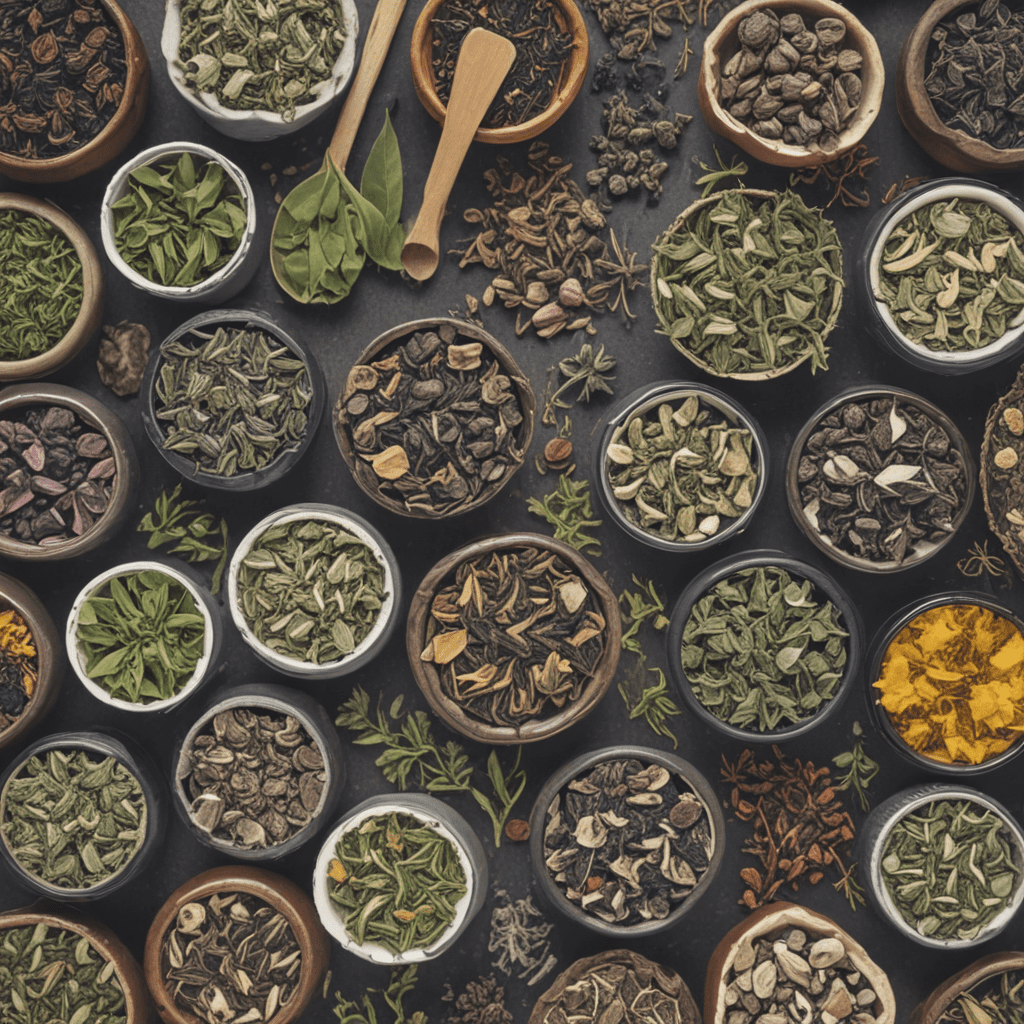
1. Introduction
In today's fast-paced world, stress and emotional imbalances have become pervasive challenges. Herbal teas, with their natural calming and mood-boosting properties, offer a gentle yet effective way to navigate these difficulties. This article delves into the role of herbal teas in stress relief and emotional well-being.
2. The Role of Stress and Emotional Imbalance
Stress is a common response to everyday challenges. While short-term stress can be beneficial, chronic stress can take a toll on both physical and mental health. It can lead to anxiety, depression, sleep problems, and a weakened immune system. Emotional imbalances, on the other hand, manifest as mood swings, irritability, and a lack of motivation.
3. Herbal Teas and Their Impact on Stress
Herbal teas contain a variety of compounds with calming, mood-boosting, and adaptogenic properties. Adaptogens are substances that help the body adapt to stress and restore balance. By incorporating herbal teas into your daily routine, you can harness the power of these natural compounds to reduce stress and improve emotional well-being.
4. Calming and Relaxing Herbal Teas
Certain herbal teas are renowned for their calming and relaxing effects. Chamomile, with its gentle floral scent, is a popular choice for promoting relaxation and reducing stress levels. Lavender, known for its soothing properties, can help alleviate anxiety and improve sleep quality. Passionflower, with its mild sedative properties, is another effective herb for calming the mind and body.
5. Uplifting and Mood-Boosting Herbal Teas
For those experiencing low mood or a lack of energy, uplifting and mood-boosting herbal teas can provide a natural solution. St. John's Wort, a traditional herb used to treat mild depression, can help stabilize mood and improve sleep. Lemon Balm, with its lemony flavor and calming properties, can alleviate stress and promote feelings of happiness. Rhodiola Rosea, an adaptogenic herb, can help reduce fatigue, improve cognitive function, and enhance mood.
6. Herbal Teas with Adaptogenic Properties
Adaptogenic herbs are renowned for their ability to enhance resilience to stress and promote overall well-being. Ashwagandha, an ancient Ayurvedic herb, is an adaptogen that can help reduce anxiety and improve mood. Holy Basil, also known as Tulsi, is another adaptogenic herb with calming and stress-relieving properties. Reishi Mushroom, a medicinal fungus, is an adaptogen that can boost the immune system and promote relaxation.
7. Blending Herbal Teas for Optimal Effects
To maximize the benefits of herbal teas for stress relief and emotional balance, it is recommended to blend different herbs together. For example, a combination of calming herbs like chamomile and lavender, with an uplifting herb like St. John's Wort, can provide a balanced and effective blend. Experiment with different combinations to find the blend that best suits your individual needs.
8. Tips for Brewing and Consuming Herbal Teas
To ensure the highest quality and potency of your herbal teas, follow these brewing tips:
- Use fresh, high-quality herbs.
- Use one teaspoon of dried herbs per cup of water.
- Steep the herbs in hot water for 5-10 minutes.
- Strain the tea into a cup and enjoy.
For optimal results, it is recommended to consume 2-3 cups of herbal tea per day. As with any herbal remedy, it is important to consult with a healthcare professional before consuming large quantities or for extended periods of time.
9. Precautions and Considerations
While herbal teas are generally safe for consumption, it is important to be aware of certain precautions and considerations:
- Some herbs may interact with medications, so it is important to inform your doctor of any herbal teas you are consuming.
- Pregnant or breastfeeding women should consult with their healthcare provider before consuming herbal teas.
- Some herbs may cause allergic reactions in certain individuals.
10. Conclusion
Herbal teas offer a gentle yet effective way to relieve stress and improve emotional balance. By incorporating calming, uplifting, and adaptogenic herbs into your daily routine, you can harness the power of nature to promote relaxation, reduce anxiety, and enhance overall well-being. Remember to consult with a healthcare professional before using herbal teas for extended periods or if you have any underlying health conditions.
Frequently Asked Questions
Q1: What is the best herbal tea for stress relief?
A: There are many effective herbal teas for stress relief, including chamomile, lavender, passionflower, and holy basil.
Q2: What is the best herbal tea for mood boosting?
A: Uplifting and mood-boosting herbal teas include St. John's Wort, lemon balm, and rhodiola rosea.
Q3: How often can I drink herbal teas for stress relief?
A: For optimal results, it is recommended to consume 2-3 cups of herbal tea per day.
Q4: Are herbal teas safe for everyone?
A: While herbal teas are generally safe, it is important to consult with a healthcare professional before consuming large quantities or for extended periods of time, especially if you have any underlying health conditions.

